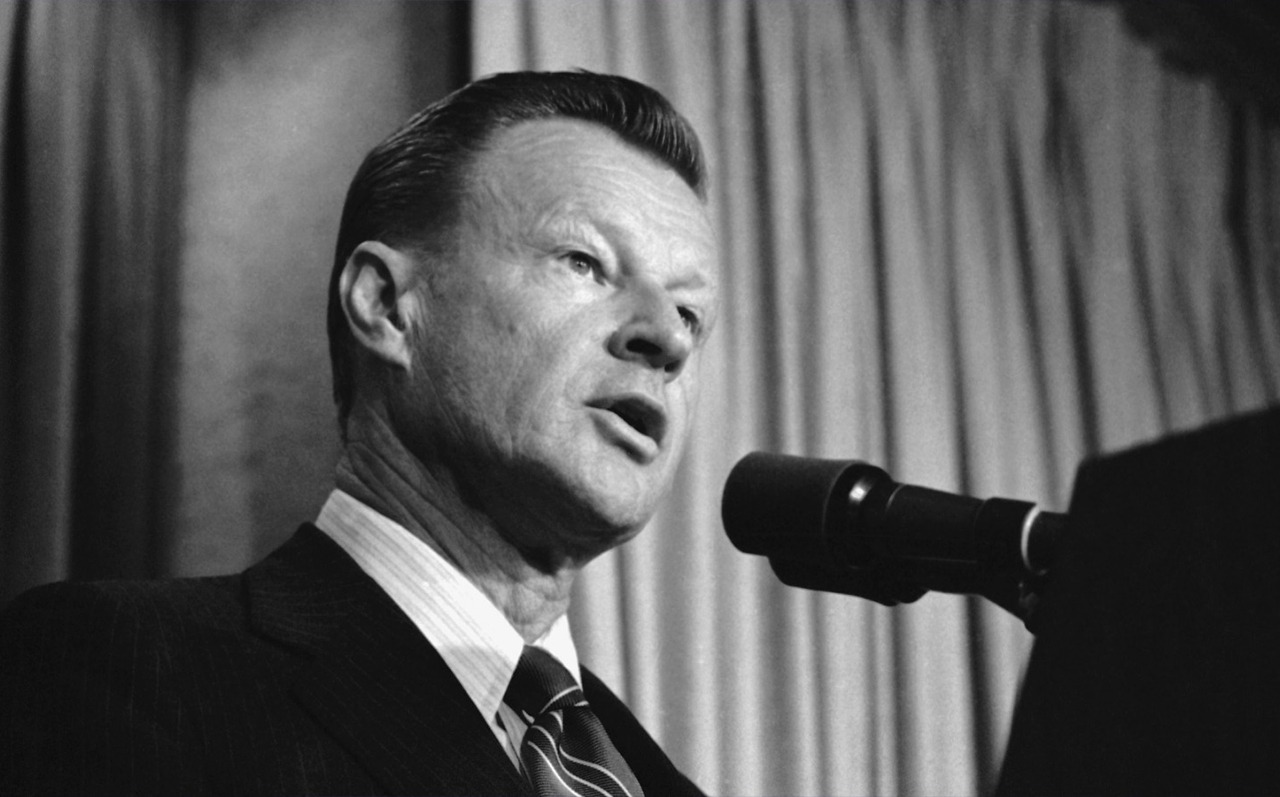One of the common temptations that I submit to every year as my birthday approaches is to Google up the famous Aries of our times. The throw-up remains cluttered with the usual assortment of the well-known: Charlie Chaplin, Eric Clapton, Robert Downey Jr, or Mukesh Ambani and Akshay Kumar closer home.
However, this year, and entirely to my surprise (I was using a different search engine), the fourth name in the search result was someone for whom I have, over the better part of the past two decades, preserved a fair amount of bitterness.
The fourth name read “Zbigniew Brzezinski”.
Brzezinski or ZBig (born March 28) was a Polish-born American political scientist, and one of the most influential personalities of the Cold War era. He remained a rare Democrat that enjoyed a bigger pull within his Republican adversaries – a conservative version of grudging admiration that is usually reserved for the most ruthless.
He was a professor in Harvard and Columbia Universities, while being a counsellor to President Johnson. He then became the Security Advisor to President Carter, and was the primary organizer of the Trilateral Commission. He was one of the architects of normalising Sino-US relations; he brokered the Camp David Accords, and he fomented East European dissent against the USSR – the impression of which is still visible today.
However, the one contribution of his that affected this end of the globe the most was his role in Afghanistan during the 80s – for ZBig was the man who conceptualised the arming of the Mujahideens against the Soviet occupation. It was his idea to give the Soviet Union ‘its Vietnam’; so he pushed Jimmy Carter to sign the first directive for secret aid to the Islamic fundamentalists who were opposed to the ‘Godless communists’ and the pro-Soviet regime in Kabul. This was in July of 1979, a good six months before the USSR rolled in Afghanistan. It was ZBig’s plan to increase the probability of a Russian intervention, and until his death in 2017, he persisted as an unapologetic defender of his strategy. The curse of Islamic fundamentalism, to his worldview remained ‘a few stirred up Moslems’ – an insignificance in front of the grand spectacle that was the ‘collapse of the USSR and the liberation of central Europe.’
And so, after my discovery about his sun sign, and as America remained busy trying to jail its next Presidential hopeful, I thought it was a good occasion to revisit one of his legendary books – The Grand Chessboard. This book perhaps best exemplifies ZBig’s view of America as ‘the only exceptional power’, while highlighting the tremendous focus he extends to Eurasia – a clear influence of Mackinder and Spykman. However, that soon became of lesser concern as I discovered, for the first time in my life, a series of premonitions that he had left between lines and pages – specific strategic miscalculations he wanted America to watch out for.
My second read felt like the overarching theme of The Grand Chessboard, instead of being a proud propaganda of American exceptionalism, was one big subtle warning to the US to be wary of the future threats. Even back in 1997, when the book came out, ZBig seemed quite certain about the impact of the rise of different regional powers, and how the USA needed to undergo a fundamental behavioural change to remain relevant.
He predicted the rise of Russia, as he predicted the rise of China as the chief adversary of the USA. Moreover, like he was opposed to the disastrous intervention in Iraq, he called to sort out American differences with Russia and use Moscow-Kremlin as a balance against China, encouraging a Russian integration into the European sphere to create a northern bulwark against China.
As for the future regional alliances, he noted “…the United States may have to determine how to cope with regional coalitions that seek to push America out of Eurasia… Potentially, the most dangerous scenario would be a grand coalition of China, Russia, and perhaps Iran… Averting this contingency, however remote it may be, will require a display of US geostrategic skill on the western, eastern, and southern perimeters of Eurasia simultaneously.” He added, quite confident about the intellect (his only mistake worth noting) of the future strategists, “However, a coalition allying Russia with both China and Iran can develop only if the United States is shortsighted enough to antagonize China and Iran simultaneously.”
ZBig correctly analysed the rise of China; and the fact that America’s attempts to export liberal democracy around the world would fail in front of China or their nationalist ambitions. He foresaw the powerhouse that would be the Asian landmass, and his appeal to American future planners was to integrate strategic portions following the post WWII mode of nation building. The book also reserves some amount of wariness about Iran’s sphere of influence, as ZBig warns against continual American miscalculation involving Iran, which could jeopardize Washington’s position in the Middle East.
Zbigniew Brzezinski – one of the most polarizing figures of contemporary times, wrote The Grand Chessboard to celebrate an American world, as well as to instruct the US to effect structural changes within its establishments to deal with the future. The future that he foresaw, would demand a lot of diplomacy, the rising states would have different lines of priority. The ‘Brzezinski way’ for the USA to remain relevant was to play along and gradually integrate them into the global structure that was exclusively American.
I failed to understand the book, sure. I was younger 20 years ago, and ZBig to me would always be equal to the 90s Kashmir terrorism. What about the US establishment and their leaders? What did they miss?
[Arindam Mukherjee is a geopolitical analyst and the author of JourneyDog Tales, The Puppeteer, and A Matter of Greed.]









